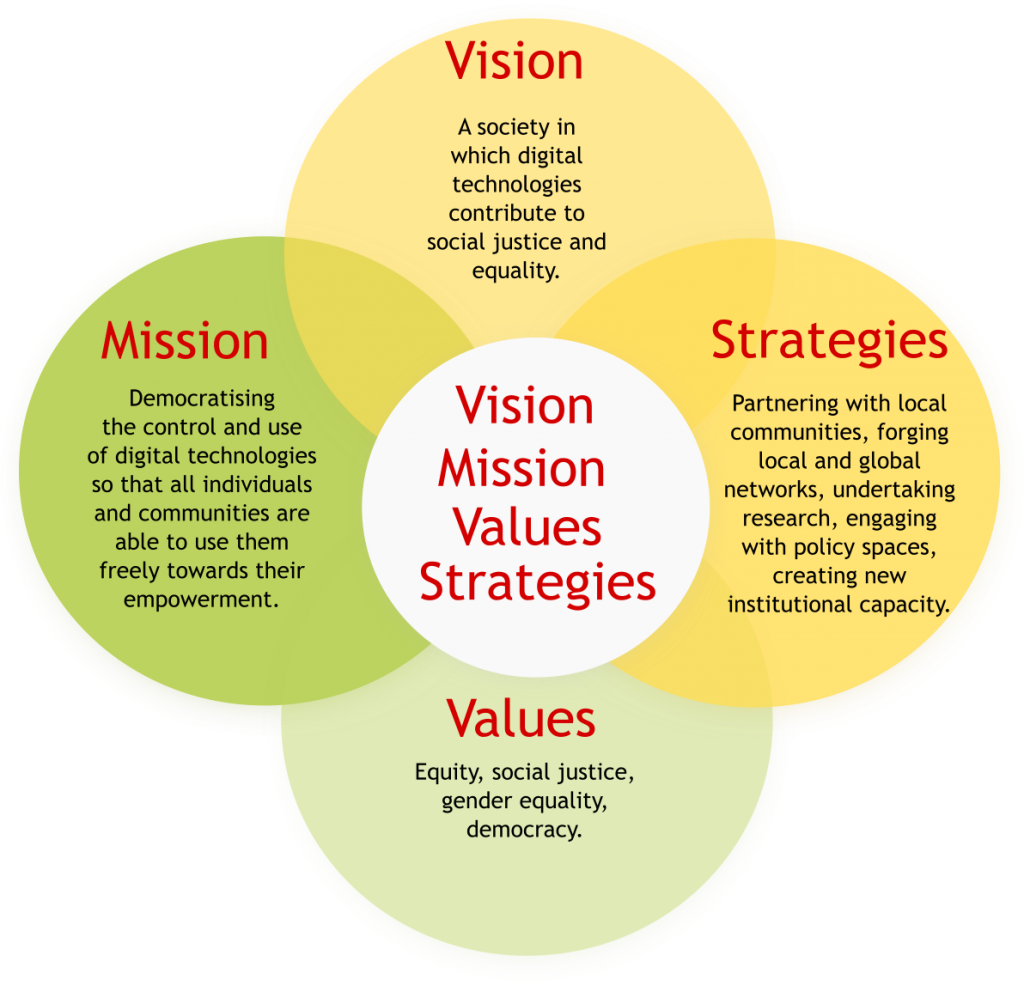IT for Change, an NGO located in Bengaluru, India, promotes innovative and effective use of Information and Communication Technologies (ICTs) for socio-economic change in the global south. Dominant approaches in relation to digital technologies are steeped in ideologies of market fundamentalism, and have displaced the cornerstone ethics of participation, social justice and gender equality.
At IT for Change, we believe that progressive development sector actors must come together to influence the techno-social structures are redefining our societies. We seek to build bridges across different sectors to strive towards an equitable information society. Our work in the areas of education, gender, development and democracy, and Internet and data governance push the boundaries of existing vocabulary and practice and explore new development frameworks.
IT for Change is in Special Consultative Status with the Economic and Social Council of the United Nations.

Thematic Areas
Our policy research and advocacy efforts in relation to the digital economy have focused on building evidence about platforms – the dominant theme of the current social and economic order, articulating the rights of marginalized constituencies in emerging economic arrangements and promoting digital policy frameworks for economic sovereignty and the right to development. Read more.
Exploring the intersections of digital rights debates with older debates in development and democracy is a critical area for our research, advocacy and field-building efforts. We are interested in expanding the scope of digital rights debates to include economic, social and cultural rights and right to development issues, in addition to civic-political liberties. A democratic governance framework for digital society, we believe, must further a rights approach that upholds the indivisibility and inter-dependence of rights. Recognizing the ways in which the digital is remaking democracy as we know it, our work this year focussed on understanding how processes such as datafication and algorithmic decision making impact electoral processes, citizen engagement, grievance redress and citizen rights. Read more.
Prakriye, our field resource center, deploys the creative potential of information and communication technologies in furthering socio-political empowerment of marginalized rural women and adolescent girls, and promoting gender-responsive local governance. In its efforts to evolve a radically new development praxis that brings power to the peripheries, the center engages with rural women’s collectives, adolescent girls, male community leaders, local government institutions and community based organizations in over 60 villages of Mysuru district, India. Read more.
The focus of our work in education continues to be on demonstrating and maturing models of technology integration that strengthen teacher agency and school autonomy, in partnership with public education systems. In 2017-18, we continued to work towards building teacher networks, collaborative resource repositories, and facilitating curriculum design and knowledge building. Read more.
The feminist project of expanding women’s autonomy and overturning entrenched power hierarchies demands new strategies in these datafied times. Digital technologies have completely restructured society and its institutions, and as data becomes the key artefact of power and control, feminism needs to stay ahead in its theory and practice. Our research, advocacy and networking efforts at global and national levels are directed towards this imperative, in order to promote gender justice in the digital society. Read more.
